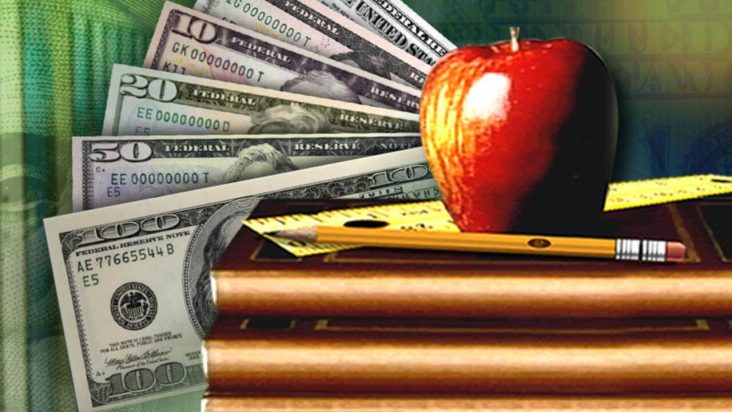Survey: A quarter would change schools with education freedom accounts
by December 12, 2023 2:31 pm 1,132 views

A quarter of registered voters in Arkansas with K-12 students living in their homes said they would change their children’s learning environment if provided state funding for non-public school options. More than 61% had favorable opinions of those education freedom accounts.
Meanwhile, 79.5% of respondents supported increasing public school teacher salaries to a minimum of $50,000.
The survey measured those two key facets of the LEARNS Act, the expansive education reform law passed by Gov. Sarah Sanders and legislators earlier this year.
Eight hundred registered voters were surveyed by telephone Aug. 24 through Sept. 8. The margin of error was plus-minus 3.94%.
The survey was conducted by Impact Management Group, a Little Rock-based political consulting firm, for ExcelinEd, an advocacy group that favors greater parental school choice and other education reforms. Impact Management Group is a partner with the Talk Business & Politics-Hendrix College poll.
Respondents were asked if they would change their child’s learning environment if the state provided $6,600 through the education freedom accounts to cover private school tuition or home school costs – a provision the LEARNS Act created. Almost a quarter (24.58%) said they would change, while 15.09% said they would consider changing. Another 58.21% said they would not change.
The survey found that 54% of respondents said the teachers with whom their children interacted in the most recent school year “appeared highly effective,” while 36.43% said their children’s teachers “appeared moderately effective.” Another 6.52% said teachers “appeared not to be effective.”
Among those who believed their children’s teachers were not effective, 52.51% said they would change their learning environments if provided education freedom accounts, while 37.19% said they would not. At the other end, almost 69% of respondents who rated teachers as highly effective said they would not change schools, while 16.58% said they would change. Among those who said their children’s teachers were moderately effective, 48.08% said they would not change while 20.69% said they would.
Overall, the survey found that 28.71% of respondents had a very favorable opinion of the education freedom accounts. Another 32.43% had a somewhat favorable opinion. A little more than 25% had unfavorable opinions, with 11.96% having somewhat unfavorable opinions and 13.38% having very unfavorable opinions. Another 7.64% had no opinion while 5.89% were unsure or refused to answer.
Surveyors asked respondents the following question to arrive at that result: “An ‘education freedom account’ in K-12 education establishes for parents a government-authorized account with restricted but multiple uses for educational purposes. Parents can then use these funds to pay for qualified expenses such as school tuition, tutoring, instructional materials for in-person or virtual instruction, curriculum, educational services provided to a student with a disability, education-related transportation costs, and more. What is your opinion of education freedom accounts?”
More than three-fourths of respondents said it was very easy (56.66%) or somewhat easy (19.99%) for them to find the type of school they want their children to attend. However, 17.45% said it was either very difficult (8.6%) or somewhat difficult (8.85%) to do so.
The percentage who found it very difficult decreased with income level. Among families with total incomes of less than $25,000, 13.48% said it was very difficult. That percentage decreased to 5.46% among families with household incomes of more than $100,000.
Meanwhile, 79.5% of respondents said they supported increasing the minimum public school teacher salary to $50,000. The LEARNS Act increased the minimum salary to that amount from $36,000. Another 13.31% opposed the increase, while 7.19% were unsure or refused to answer.
The survey also found that 18.61% of respondents had a very favorable opinion of charter schools, while 36.51% had a somewhat favorable opinion of them. The question was prefaced with the explanation, “Charter schools are public schools that have more control over their own budget, staff, and curriculum, and are exempt from many existing public school regulations.”
On the other side, 15.91% had somewhat unfavorable opinions of charter schools while 9.84% had very unfavorable opinions.
You can access the survey results at this link.
